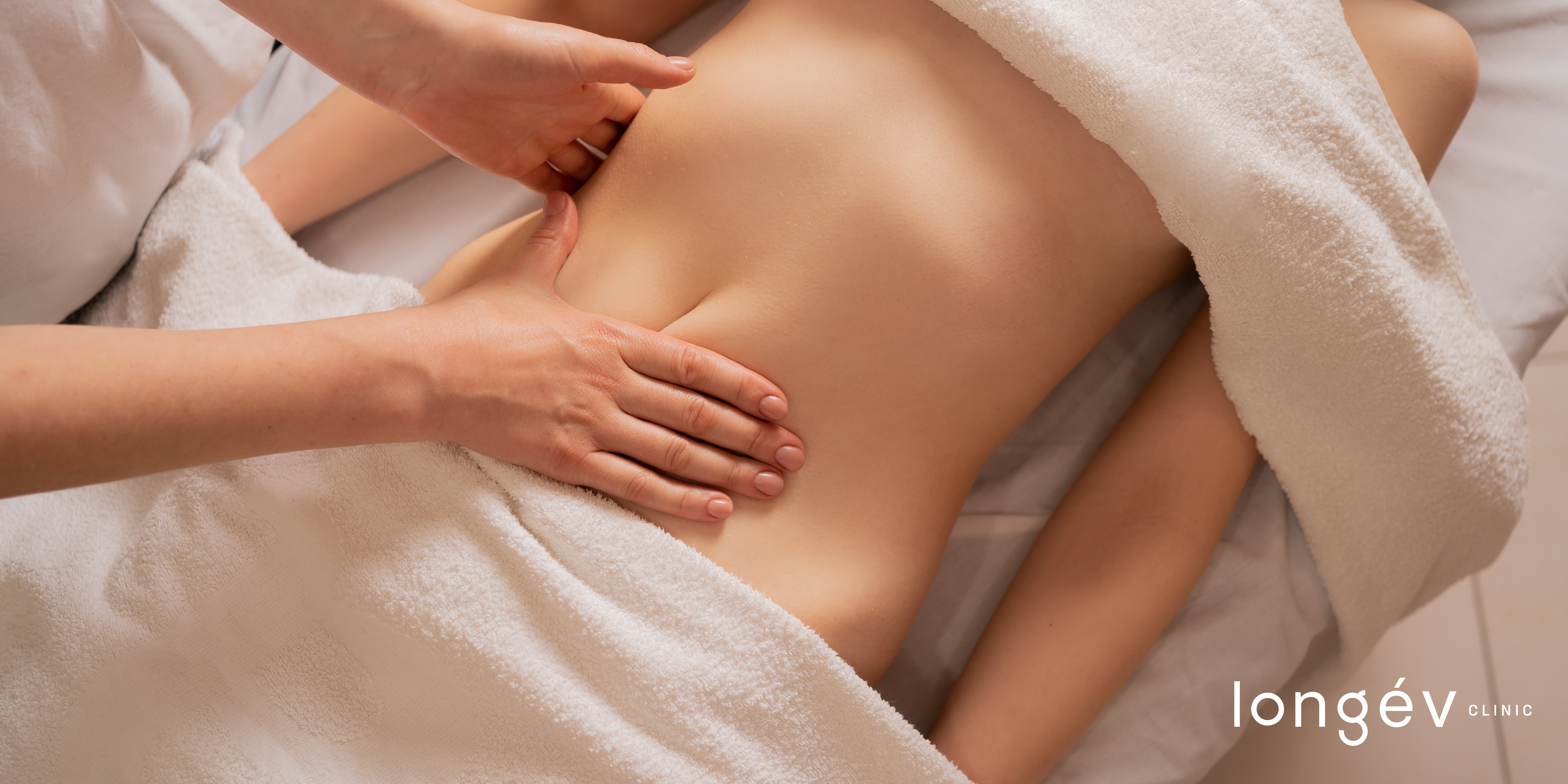

Did you know stress can impact your skin? Checking in on your body is an important practice to prevent and manage stress. Our lives are so busy and can easily become overwhelming, especially when there are many challenges that are outside of our control. Symptoms of stress can build up slowly so you don’t see the impacts of stress until it has become a chronic issue. Some signs that you may see include: faster respiratory or heart rate, lower heart rate variability (tracked digitally), change in appetite and/or digestive discomfort, sleep disruption, lower energy, hormonal changes, skin changes, muscle tension and jaw clenching.
One strategy to assess your own body for stress is by taking some deep breaths, focusing on the depth and length of both your inhalation and exhalation. To feel more ease, extend the exhale, which stimulates nervous system relaxation. You may also want to try coherence breathing to improve heart rate variability. This study has shown that regularly practicing coherent breathing reduces stress, improves overall physiology and invokes positive emotions. All you have to do is practice coherent breathing for 2-5 minutes every day.
Here is a brief breakdown of how stress can lead to worsening of several
dermatologic conditions – so it’s a good idea to get your stress levels down!
- Acne – Stress directly increases sebocyte activity leading to increased sebum
production.1 Additionally, stress increases cytokines (inflammatory
mediators) in the skin.2 Both sebum production and inflammation play key
roles in the pathogenesis of acne. This has been demonstrated in studies
where students showed increased acne severity with stress from exams.3 - Eczema – Stress can negatively impact the skin’s barrier function leading to
increased sensitization to environmental factors.4 Further, stress leads to
immune and inflammation dysfunction which worsens the severity of
eczema.5 - Psoriasis – The relationship between psoriasis and stress is complex and not
fully understood. It appears a two way relationship exists, with stress causing
increased psoriasis exacerbations through immune and inflammatory
changes. Additionally, psoriasis flares create stress in the body.6 - Premature Aging – Cortisol has been found to reduce collagen and lipid
production in the skin. This manifests as atrophy of the skin, disruption to the
skin’s barrier, and impaired wound healing, all of which can contribute to
signs of premature aging.7
If you would like to have some support for stress and to learn proper techniques to alleviate it we suggest booking an osteopathy appointment.
Studies:
- Zouboulis C C, Seltmann H, Hiroi N, Chen W, Young M, Oeff M, Scherbaum W
A, Orfanos C E, McCann S M, Bornstein S R. Corticotropin-releasing hormone:
an autocrine hormone that promotes lipogenesis in human sebocytes. Proc.
Natl. Acad. Sci. U S A. 2002;99 (10):7148–7153. - Zbytek B, Mysliwski A, Slominski A, Wortsman J, Wei E T, Mysliwska J.
Corticotropin-releasing hormone affects cytokine production in human HaCaT
keratinocytes. Life Sci. 2002;70 (9):1013–1021. - Chiu A, Chon S Y, Kimball A B. The response of skin disease to stress:
changes in the severity of acne vulgaris as affected by examination
stress. Arch. Dermatol. 2003;139 (7):897–900. - Levin J, Friedlander S F, Del Rosso J Q. Atopic dermatitis and the stratum
corneum part 2 other structural and functional characteristics of the stratum
corneum barrier in atopic skin. J. Clin. Aesthet Dermatol. 2013;6(11):49–54
- Okada H C, Alleyne B, Varghai K, Kinder K, Guyuron B. Facial changes caused
by smoking: a comparison between smoking and nonsmoking identical
twins. Plast. Reconstr. Surg. 2013;132 (5):1085–1092. - Chen Y, Lyga J. Brain-Skin Connection: Stress, Inflammation, and Skin Aging.
Inflamm Allergy Drug Targets. 2014;13(3):177-190. - Dunn J, Koo J. Psychological Stress and skin aging: A review of possible
mechanisms and potential therapies. Derm Online Journal. 2013;19(6).



